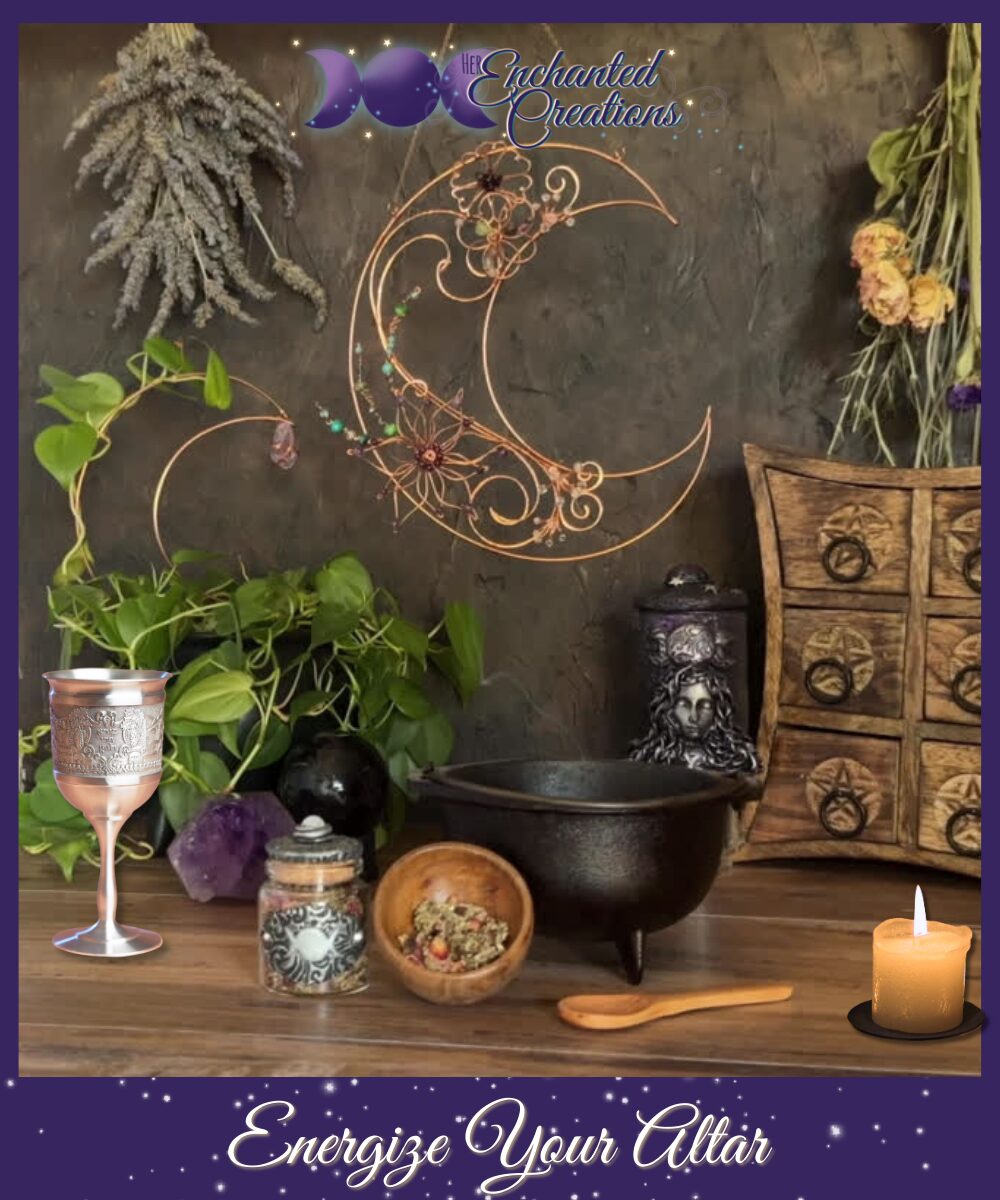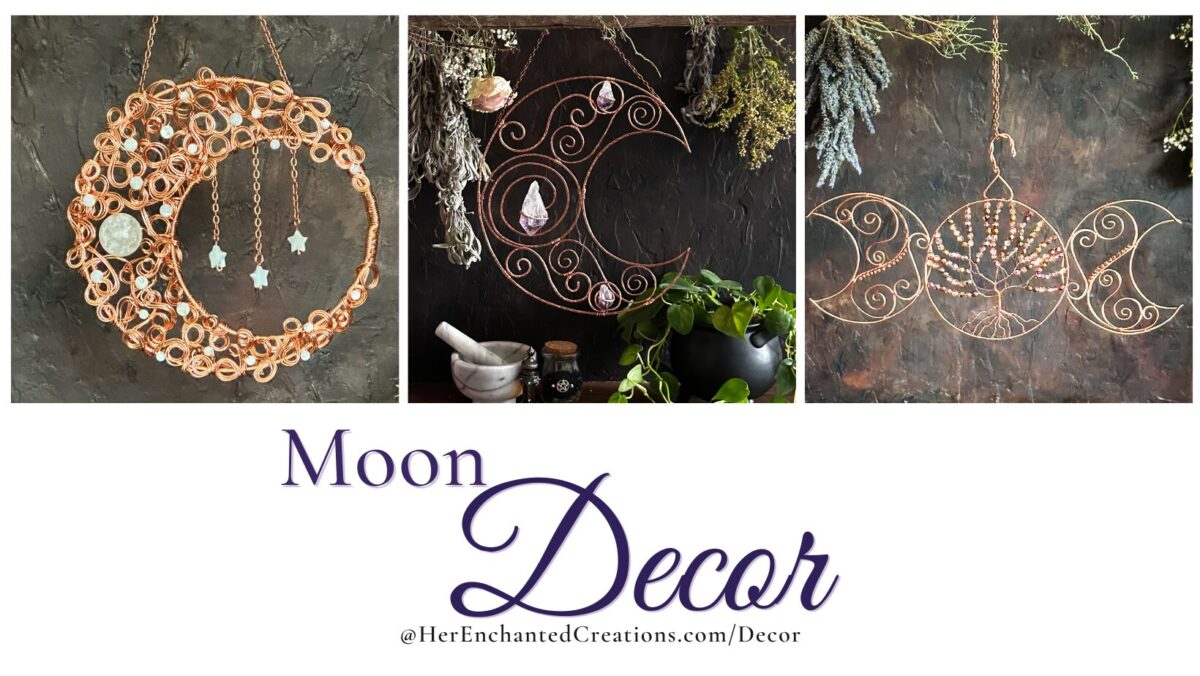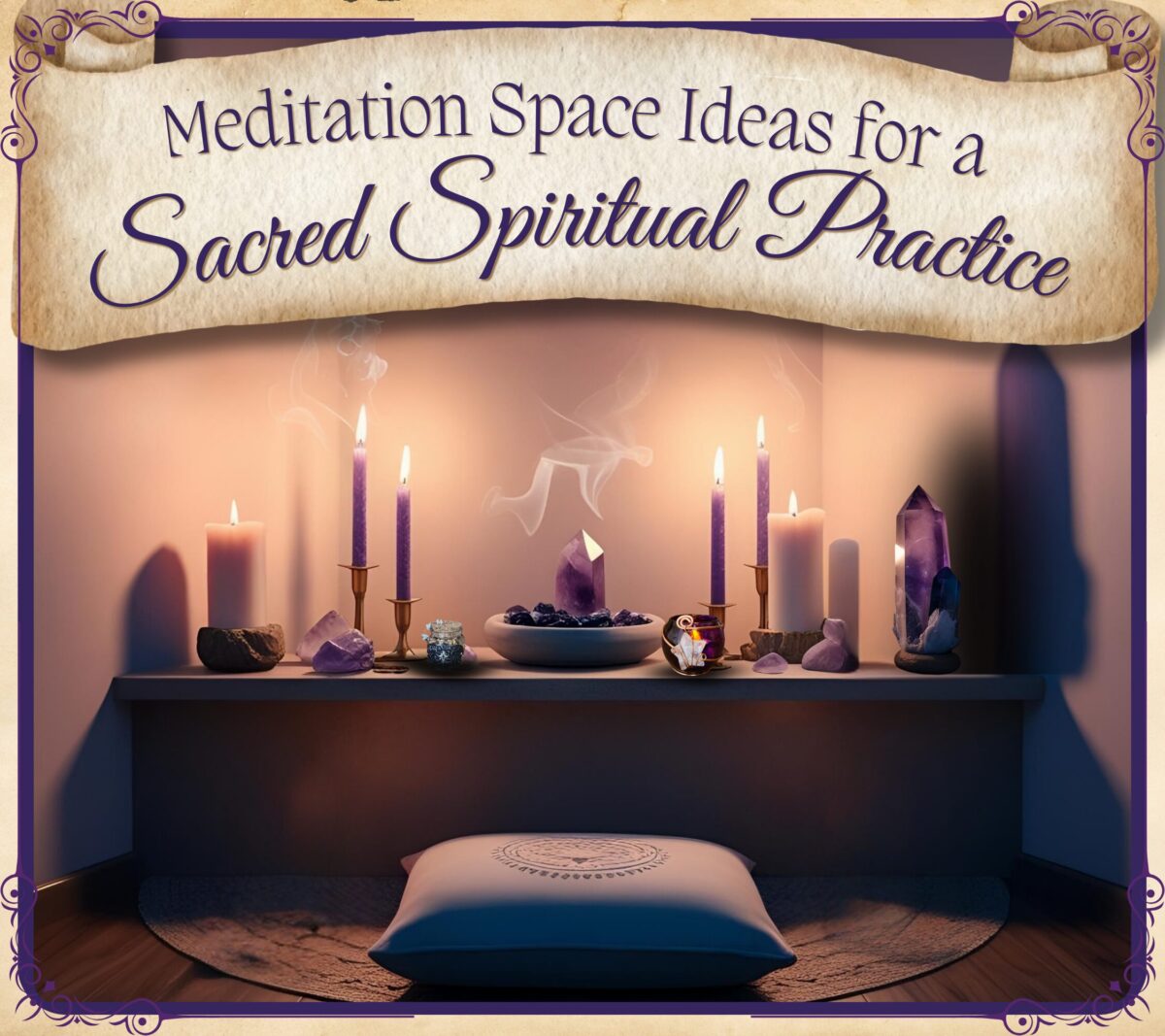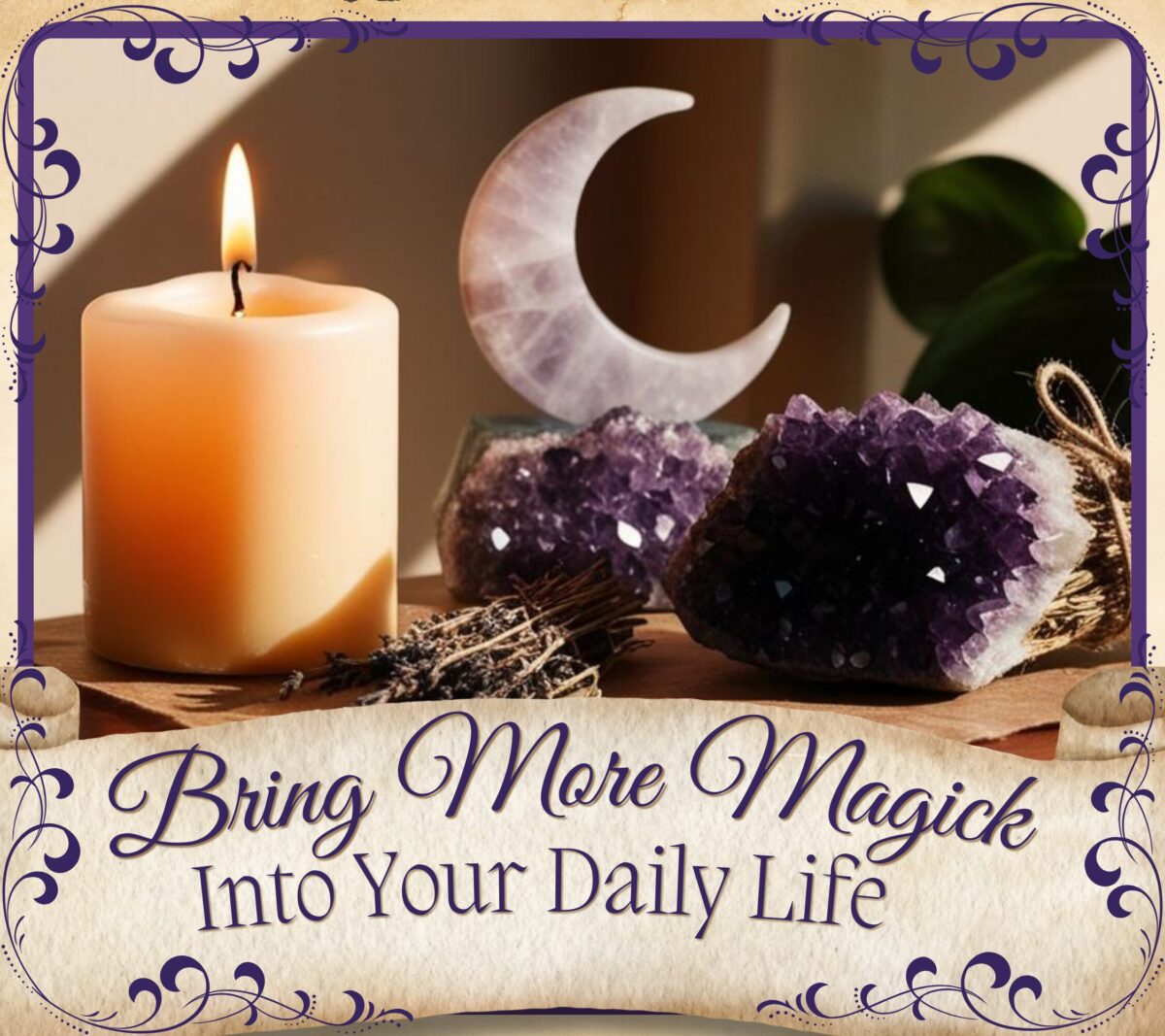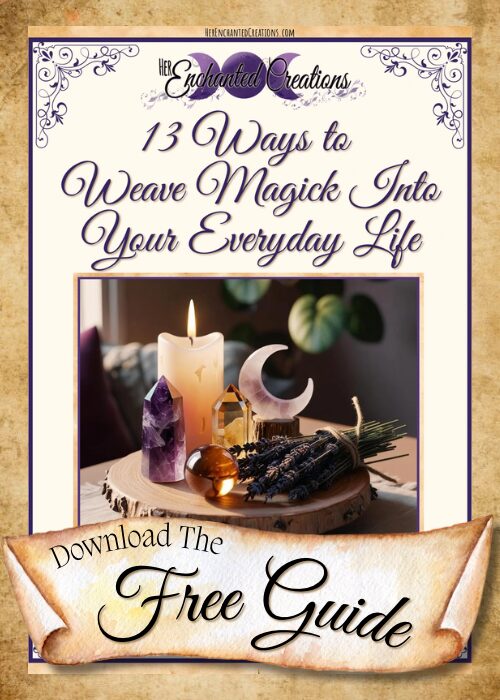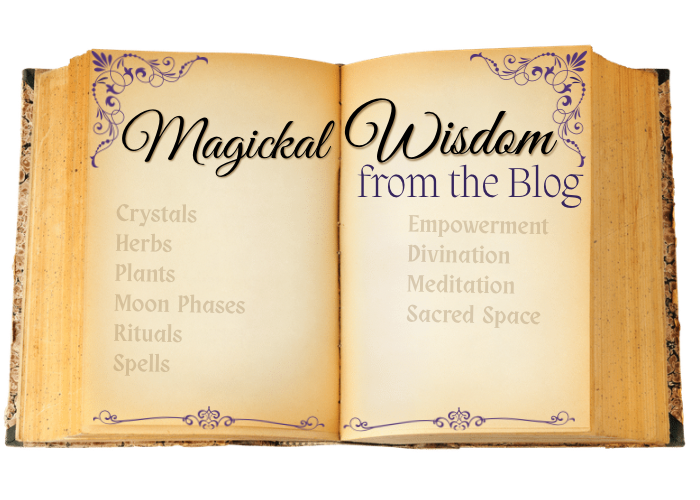
As someone who embraces spiritual path, I believe in the power and beauty of creating a personal sacred space. A spiritual altar is a profound way to manifest this space, allowing you to connect deeply with your spiritual self, the universe, and the energies around you.
Being a longtime witch and priestess, a cornerstone of my practice is to create and spend time at my altars. I have many, some are working altars, like my business altar and my spellwork altar. Some are devotional, a place where I spend time daily honoring my patron Deity and making offerings. Some are extremely personal, and some, like my hearth altar to Hestia, are more general and welcome others into the sacred space of my home.
While I know that there are as many ways to create altars as there are ways to worship, there are some core elements that tend to be integral in most spiritual, magickal altars. I’d love to share a few ideas and steps, in hopes of helping you create your own spiritual altar, a space that resonates with your personal journey and spiritual beliefs.
Understanding the Essence of a Spiritual Altar
A spiritual altar is more than just a physical arrangement of items; it's a personal sanctuary, a space where you can reflect, meditate, and connect with something greater than yourself. Whether you follow a specific spiritual or magickal path or are on a quest to discover your spiritual calling, a spiritual altar can be a powerful tool on your journey.
Components of a Spiritual Altar and Their Symbolic Meanings
When setting up a spiritual altar, each component you choose carries its own energy and symbolism. There are many magickal correspondences worth considering when creating an altar. Here's a look at some common elements and what they represent:
1. Altar Cloth: This serves as the foundation of your altar. It acts as a layer between the mundane and the spiritual, setting the tone for the altar. Choose a cloth that resonates with your intentions, whether it's a specific color, texture, or pattern. The cloth symbolizes the grounding of your spiritual practice.
2. Elemental Symbols: Including representations of the natural elements — earth, air, fire, and water — helps to balance the energies on your altar and keep you connected to the natural world. Some simple suggests are to use stones or crystals for earth, feathers or incense for air, candles for fire, and shells or a bowl of water for water.
3. Spiritual Icons: Depending on your beliefs, you might include statues, images, or symbols of deities, spiritual figures, or totems. In the beginning of your altar workings, these icons serve as a reminder of the spiritual energies and entities that guide and support you.
4. Personal Talismans: Consider including items on your altar that hold personal significance, such as photographs, heirlooms, or gifts. Keep in mind the purpose of your altar when you choose what items to include, making sure they hold the same energy you’re focused on. Bringing in something of yourself in this way can add a unique and intimate energy to your altar, making it truly yours.
5. Magick or Divination Tools: Depending on the purpose of the altar, you might want to include tools such as an athame or wand for spell casting, tarot cards or a pendulum for divination workings, or possibly oracle cards for daily inspiration.
Setting Up Your Spiritual Altar: A Step-by-Step Guide
 1. Selecting the Right Space: Your spiritual altar should be in a place where you feel calm and undisturbed. This could be a quiet corner of your room, a dedicated space in your living area, or even a secluded spot in your garden.
1. Selecting the Right Space: Your spiritual altar should be in a place where you feel calm and undisturbed. This could be a quiet corner of your room, a dedicated space in your living area, or even a secluded spot in your garden.
2. Cleansing Your Space: Before you begin setting up your altar, it's important to both mundanely and magickally cleanse the area. Begin with a little housekeeping, making the space clean and comfortable. Magickal cleansing can be done by burning sage or a cleansing herbal blend, by using Reiki, using sound like a bell or a singing bowl, or simply by visualizing a cleansing light sweeping through the space.
3. Laying Down Your Altar Cloth: Start by placing your chosen altar cloth. As you lay it down, set an intention for your spiritual practice and for the altar to hold the energies you’ve chosen, such as focusing on creating a space of peace and reflection.
4. Arranging Elemental Symbols: Position the elements in a way that feels balanced and harmonious to you. You might follow traditional placements or arrange them in a way that feels intuitively right.
5. Adding Spiritual Icons and Personal Relics: Place your spiritual icons and personal items on your altar. These should be arranged in a way that feels respectful and meaningful to you.
6. Introducing Your Tools: Arrange any tools you've chosen to include. As you add each item, focus on it’s purpose and on the power it will bring to the altar and to your spiritual practice.
7. Energizing Your Altar: With everything in place, take a moment to energize your altar. This might involve a small ritual, a simple lighting of a candle, or reverently spending some time in meditation or reflection. 
8. Regular Maintenance and Adaptation: Your spiritual altar is a living part of your spiritual practice. Keep it clean, refresh any water or offerings regularly and remember that the energy of the altar grows stronger with the time and energy you give to it and spend with it! Meditate at your altar, journal, do magick or simple contemplate! Feel free to change and rearrange elements as your journey evolves.
Embracing the Journey with Your Spiritual Altar
Your spiritual altar is a reflection of your inner self and your spiritual journey. It should be a place where you feel comfortable, peaceful, and connected. It's a space for you to explore your spirituality, meditate on your intentions, and connect with the energies that guide you.
As a priestess, one of the things that was a priority for me when creating Her Enchanted Creations, was to share the power and beauty of personal sacred space. In addition to sharing the energy and informations, every creation I make is designed to enhance and complement your spiritual practices, whether you're just beginning to explore your path or are well into your journey.
Creating a spiritual altar is a deeply personal and fulfilling experience. It's a practice that allows you to express your spirituality in a tangible way and serves as a constant reminder of your connection to the greater universe. May your spiritual altar be a source of peace, inspiration, and growth as you continue on your spiritual path.

